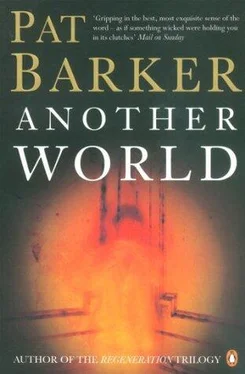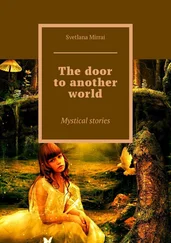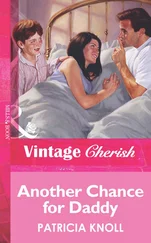They flirt outrageously, these two. No wonder Geordie always wore a suit for the interviews. A clean shirt, a tie. Would spread newspaper on the kitchen table the night before and clean his shoes.
GEORDIE: Me mam never got over our Harry, and that was the root of a lot of my troubles. Wrong one died, simple as that.HELEN: Are you sure that’s what she thought?GEORDIE: She said it. At our Harry’s memorial service, she turned round to me as we were leaving the church, and she says, ‘It should have been you.’HELEN: She came right out and said it?GEORDIE: Oh yes.
Helen doesn’t believe this. Nick knows, because she’s told him so. She’s heard the same story seven or eight times from other veterans. It isn’t that she thinks he’s lying, either to himself or to her, but she believes he’s remembering a communal myth rather than a personal experience.
Nick doesn’t know what to think. It’s possible Helen’s right, but then isn’t it equally possible that the same incident happened seven or eight or a hundred times to different people? The country must have been full of grief-stricken women wishing somebody else had died, and too far gone in misery and bitterness to hide the truth.HELEN: And that still hurts?
But Geordie’s not having any of that. The question’s answered by silence.
GEORDIE: She got into spiritualism, me mam. Well a lot of the women did — and a few men. And there was this chap who used to take photos of people who’d lost somebody — a son or a husband or whatever — and lo and behold when the picture came out there was the person they’d lost in the photograph with them. So what could you do? Me mam was set on it and so Dad and me and our Mary all got our glad rags on, and off we went. The Great Family Portrait. I don’t know what I expected, I couldn’t see any fraud going on, but then it wouldn’t be done then, would it? Anyway, when we got them there was this, I don’t know, thing , in the background. You couldn’t make out the features, but you could just about see it was a face. And me mam says, ‘Oh, there’s our Harry,’ and she bust out crying and, I don’t know why, but it absolutely knocked my end in, did that. I was no good at all after.HELEN: When was that?GEORDIE: 1919. When the Armistice come on, you know, I didn’t want anything to do with that. I knew I couldn’t go through with it, the parades and all that, so I went to the coast instead. I walked miles and I didn’t have me watch on me so I didn’t know when it was eleven o’clock. But I was silent all day anyway, so it didn’t matter.HELEN: Did you go to subsequent parades?GEORDIE: Only once. I know a lot of men found it helped them, but I just, I just couldn’t, I just didn’t want to be reminded. The only time I did go was because little Geoffrey — our Harry’s lad — was going to be in it, and I felt I had to. But even then, I wished I hadn’t. There’s this little lad standing there with Harry’s medals on his chest and he didn’t know what the hell it was about. All he knew was he was going to get jelly and custard afterwards. They always gave the war orphans a slap-up tea in the Scout Hut. And afterwards I heard him boasting to his pal about it, and this other little lad turns round and he says, ‘I’d rather have me dad.’ Oh, and the look on Geoffrey’s face. Do you know, up to that time, I don’t think he’d made the connection between having no dad and stuffing his face on all this jelly and custard. You could see on his face, it was a real blow. I didn’t hold in with all that, anyway. Cubs and Boy Scouts wearing their dads’ medals and marching.HELEN: Did you think there was an element of glorifying war in it?GEORDIE: To an extent I did, yes. That and the hypocrisy. There was men fought in that war who were struggling to keep a roof over their family’s heads. If you must know, I used to think some people remembered the dead so they could forget the living with a clear conscience.HELEN: You thought — GEORDIE: I thought we’d been conned, love. (Laughs.) I knew we’d been conned.HELEN: You didn’t find it easy to get work?GEORDIE: Tramped round for two years before I got anything, and then it was in a scrapyard. I lived in a shed in the yard, and I had this little dog, a Jackie Russell it was, I loved that dog. Well, I was earning a living, but I was, I don’t know, on the fringes, I suppose. They were all saying in our street, Geordie’s a tinker. Me mam was mortified. Oh, it was a disgrace, that shed. She come up one afternoon with our Mary and of course the place was spotless. Didn’t matter, it was still a disgrace. And then about that time I palled up with these lads, and we used to go to the Palais, big bunch of us, and I’d have a dance with the lasses. You needed a lass to dance with in them days. These days they just stand up on their own and wriggle. But after the dance was over I never tried talking to the lass, I just used to take her straight back to her mates and more or less dump her.HELEN: Why?GEORDIE: Stammer. I didn’t tell you about the stutter did I? Paralytic, couldn’t get a word out.HELEN: Doesn’t seem to bother you now.GEORDIE: No, but it did then. You know I was a good dancer, I wasn’t bad-looking, no, no, I’m not being vain, I didn’t say I was good-looking, I says I wasn’t bad, but as soon as I opened my mouth that was it. You’d see the poor lass thinking, Oh, heck, what have we got here? But then I got on with our lass.HELEN: And she was different?GEORDIE: Oh yes, totally different. And it wasn’t easy for her, she had a helluva job with me when we were first married, because I was still having the nightmares and I used to wake up screaming, but it was worse than that. You know, I should be ashamed to say it, I suppose, but I used to wet meself. She’d wake up and there I’d be, screaming and clawing at the wall, and the bed’d be drenched and she’d be drenched. There’s many and many a woman wouldn’t’ve put up with what she did, and do you know she never once threw it up at me? She used to sit on the bed beside me and get hold of me hands and she used to sing: Keep yor feet still, Geordie hinny,Let’s be happy for the neet,For we may not be sae happy thro’ the day,So give us that bit comfort,Keep yor feet still, Geordie lad!And dinnet drive me bonny dreams away.She was a good woman. She died forty-five years ago, and I can truthfully say there hasn’t been a day gone by that I haven’t missed her.
HELEN: And then you got a job?GEORDIE: I got took on at a printer’s. I loved that job, all these b’s and c’s I couldn’t say, I’d just pick them up and slot them in. Click, click. Magic.HELEN: You were happy?GEORDIE: I was very happy. Still am. I’ve got nothing to complain about, I’ve had a good life.HELEN: But you still didn’t go on the parades or anything like that?GEORDIE: No, but I remembered in me own way. Every August 31st I’d say the lads’ names over to meself, and there were other dates as well. June 22nd.HELEN: Harry?GEORDIE: Yes. Harry.
A rare reference to Harry’s death, not pursued. All Geordie’s words, Nick realizes suddenly — and there are thousands of them in this interview alone — orbit round a central silence, a dark star. And yet his nightmares, now, are not about ‘the war’. They’re about Harry. It’s Harry’s name he shouts out in the night.
Before he gets into bed Nick winds up the clock Grandad keeps on the table in the hall, then takes it into the living room and closes the door on it. He’ll still hear the chimes, but as long as he doesn’t fall into the trap of listening for the next quarter it shouldn’t disturb him too much. We have heard the chimes at midnight, Master Shallow… Grandad certainly has, more often than most.
Nick stops to listen outside Geordie’s door. The mattress creaks, a few gabbled words, then silence. He goes into the spare room and opens the window. The moon’s just rising above the trees. Long shadows leap across the backyard wall and reach for the house. He gets between the sheets and turns off the light.
Читать дальше












